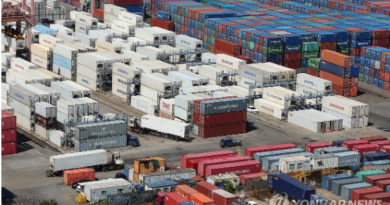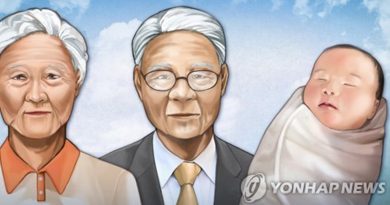K-Exports Expected to Continue to Increase for 12 Consecutive Months

The Ministry of Trade, Industry and Energy (Minister Ahn Deok-geun, hereinafter referred to as the Ministry of Trade, Industry and Energy) held an export trend review meeting chaired by First Vice Minister Park Sung-taek on the morning of Tuesday, September 24 to analyze the export situation by major item and discuss ways to expand exports.
From January to August this year, the cumulative export amount increased by 9.9% year-on-year to $450 billion. The trade balance has maintained a surplus for 15 consecutive months, and the cumulative surplus reached $30.3 billion, which is three times the total deficit of last year, $10.3 billion.
First Vice Minister Park Sung-taek evaluated, “Our exports have continued to increase since turning positive in October last year and have led economic growth until August this year.” He also emphasized, “As of September 20, cumulative exports decreased by 1.1% year-on-year due to the lack of operating days due to the Chuseok holiday (16th-18th), but average daily exports considering operating days increased by 18.0%,” and said, “We expect to continue the positive trend in September as a whole and achieve export plus for 12 consecutive months.”
Number of operating days and average daily export amount as of September 1-20: (2023: USD 36 billion) 15.5 days, USD 2.32 billion → (2024: USD 35.6 billion, -1.1%) 13.0 days (-2.5 days), USD 2.74 billion (+18.0%)
Vice Minister Park stated, “The public and private sectors will cooperate to provide full support so that the export boom can continue until the end of the year and we can achieve the highest export performance ever this year,” and added, “In particular, we will closely analyze the impact on our exports of the worsening situation in the Middle East due to the Israel-Hezbollah conflict and the Federal Open Market Committee (FOMC)’s decision to cut the benchmark interest rate (September 18, local time, -0.5%p).” He also warned that, “Although the domestic introduction of crude oil and liquefied natural gas (LNG) and the shipment and delivery of our export goods have been proceeding smoothly so far, if the instability in the Middle East worsens in the future, there may be risks to oil prices and logistics costs that could affect domestic energy supply and exports,” in light of the recent escalation of the Middle East conflict, and he emphasized that they would closely monitor the situation in the Middle East through the public-private joint “Export Emergency Response Team” and thoroughly implement emergency plans for each scenario.
Editor. Hong Se-young








